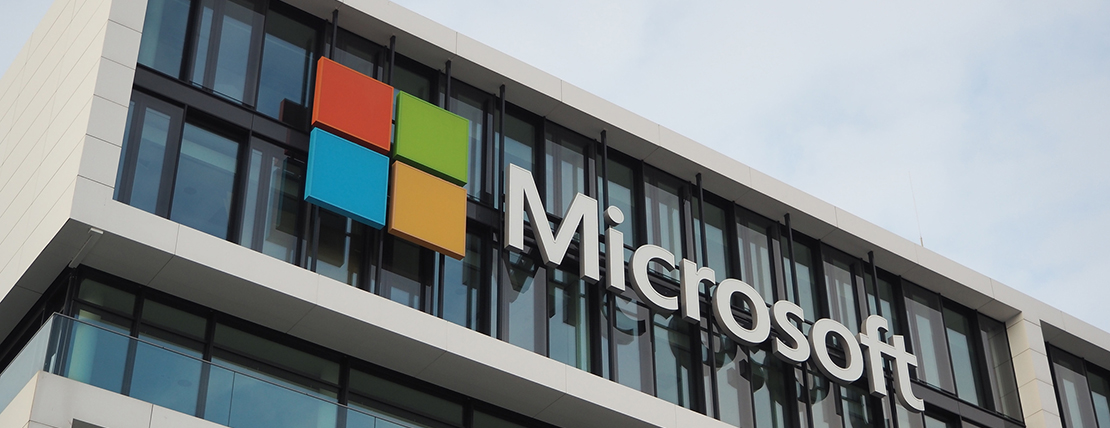As reported by the Wall Street Journal, Microsoft Corp. said it won’t raise salaries for full-time employees this year, citing concerns over an uncertain economic climate.
The software company said it does plan to offer promotions, bonuses and stock awards to full-time employees this year.
“As a company we recognize that navigating both a dynamic economic environment and a major platform shift requires us to make critical decisions in how we invest in our people, our business and our future,” a Microsoft spokesperson said Wednesday.
Microsoft said last month that its growth remained subdued in the first three months of the year. Economic concerns have dampened consumer demand and hurt corporate orders for the company’s software and cloud services. Its cloud-computing business has also slowed after years of expansion, the Journal reported.
The downbeat outlook comes as the company has drawn attention for its focus on AI. Earlier this year, Microsoft said it was deploying the technology behind the viral chatbot ChatGPT across its products. Microsoft has said it is investing billions in OpenAI, the startup behind ChatGPT.
Still, Microsoft, like other tech companies, has been cutting staff. In January it announced plans to eliminate 10,000 jobs, its largest layoff in more than eight years.
Goldman Sachs to Pay $215 Million in Pay Discrimination Settlement
Goldman Sachs Group Inc. has agreed to pay $215 million to put an end to a long-running class-action lawsuit that accused the Wall Street bank of systematically underpaying women, Bloomberg News reports.
Goldman Sachs struck the deal with lawyers representing about 2,800 female associates and vice presidents, according to a joint statement from the bank and the plaintiffs’ lawyers. About a third of the settlement is expected to be set aside for attorney fees.
The upcoming trial, scheduled for next month in New York, would have provided a rare public forum for testimony about inequality inside the financial industry, where all but one of the six biggest U.S. banks have only ever been run by men, Bloomberg noted.
The settlement is bigger than the sum that Smith Barney paid decades ago, more than $100 million, to end what was known as the Boom-Boom Room suit, which had accused the firm of harassment and discrimination.
Trials promise attention but also uncertainty. Lawyers for the women wrote in court records that some legal and procedural obstacles in their way were “significant,” even as they said they believed their claims have merit.
Goldman Sachs will engage an independent expert to conduct additional analysis on how it evaluates performance and its process for promotion, according to the statement.
The Goldman suit was first brought by Cristina Chen-Oster, a Massachusetts Institute of Technology graduate who joined in 1997 and sold convertible bonds. She filed a discrimination complaint in July 2005 with the US Equal Employment Opportunity Commission, then sued in 2010. Goldman fought — successfully, in some cases — to send some women in the case to arbitration, a more secretive system.
Goldman is “proud of its long record of promoting and advancing women and remains committed to ensuring a diverse and inclusive workplace,” Jacqueline Arthur, head of human resources, said in a statement.
Report: Workers Spend Two Full Days a Week on Email and in Meetings
New data from Microsoft that examined the activity of millions of workers who use the company’s business applications found that many employees spend the equivalent of two workdays in meetings and on email.
The data, as reported by the Wall Street Journal, is part of the software maker’s annual study of workplace-productivity trends, which provides the latest, and one of the largest, measures of how people actually spend their workdays.
Microsoft, along with Google, Slack and Zoom, is among the biggest sellers of workplace-communications tools, and its report puts numbers to the crush of data, emails, meetings and notifications that many people say consumes their time on the job and distracts from actual work.
Researchers found that the 25% most active users of its apps — in other words, people who use Microsoft’s business software for much of their online work activity — spent an average of 8.8 hours a week reading and writing emails and 7.5 hours logging meetings.
Those figures don’t include time spent instant messaging, on the phone or in other, impromptu conversations with co-workers. In all, the average employee spent 57% of their time using office software for communication — in meetings, email and chat. The remainder of time, 43%, they used for creating things, such as building spreadsheets or writing presentations.
Both workers and bosses complain that digital overload is hurting innovation and productivity, a sentiment echoed in numerous workplace studies. In a separate Microsoft survey of 31,000 people worldwide, nearly two out of three said they struggled to find time and energy to do their actual job.
Those people were more than three times as likely as others polled to say innovation and strategic thinking were a challenge for them. (The company didn’t break down how sentiments differed in different countries or industries.)
Study: Employee Satisfaction Hit a 36-Year High in 2022
A survey by the Conference Board found that 62.3% of U.S. employees are satisfied with their job, the highest share since the business research organization started the survey in 1987.
Behind the satisfaction is improved compensation, increased flexibility and more employees moving into positions that were a better fit. Employee satisfaction was at 60.2% in 2021 and 56.8% in 2020.
The Conference Board polled 1,680 employees in November on 26 aspects of work, and found that people were most content with their commutes, their co-workers, the physical environment of their workplace and job security. Among the happiest workers were people who voluntarily switched jobs during the pandemic and individuals working in hybrid roles with a mix of in-person and remote work.
Men’s satisfaction was higher than women’s in every component, especially in areas such as leave policies, bonus plans, promotions, communication and organizational culture.
Many large organizations have implemented layoffs in the early portions of 2023 and announced conservative growth plans in preparation for an economic slowdown. The Conference Board predicts the U.S. will enter a short, shallow recession later this year and that unemployment will rise to 4.4% from the current 3.4% by the first quarter of 2024.
“Once unemployment goes up, once we hit a recession, there will be fewer people changing jobs they were unhappy with,” said Selcuk Eren, a senior economist at the Conference Board.
The satisfaction measure hit its lowest point — 42.6% — in 2010, in the aftermath of the 2007-09 recession.
Editor’s Note: Additional Content
For more information and resources related to this article see the pages below, which offer quick access to all WorldatWork content on these topics:








